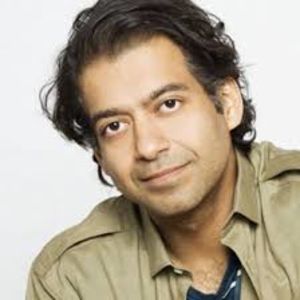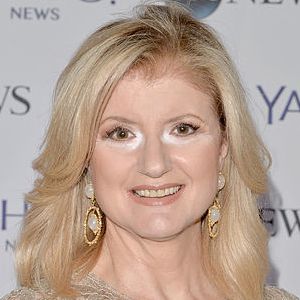Want to know what books James Clear recommends on their reading list? We've researched interviews, social media posts, podcasts, and articles to build a comprehensive list of James Clear's favorite book recommendations of all time.
1

Will Durant, Ariel Durant | 4.32
Will Durant once wrote that "most history is guessing, & the rest is prejudice." Now, 33 years later, the Durants, in this peroration to their monumental "Story of Civilization," look back to record the lessons & conclusions of their 10-volume excursion into human folly & achievement--&, coincidentally, to determine what value historical guesswork & historians' predispositions may have in understanding the nature of humanity. Their reflections are thematic in nature, discussing the influence & effect upon history of certain qualities, institutions & movements:... more Will Durant once wrote that "most history is guessing, & the rest is prejudice." Now, 33 years later, the Durants, in this peroration to their monumental "Story of Civilization," look back to record the lessons & conclusions of their 10-volume excursion into human folly & achievement--&, coincidentally, to determine what value historical guesswork & historians' predispositions may have in understanding the nature of humanity. Their reflections are thematic in nature, discussing the influence & effect upon history of certain qualities, institutions & movements: race, character, moral systems, religion, socialism, government, war etc. Their overall conclusion is at once optimistic & realistic; the phenomenon of progress is no figment of the historian's imagination; it's real, in the sense that each generation is born to a heritage richer than that received by their fathers. Thus, the 20th century is the most blessed of all eras so far, from a cultural standpoint, for it has assimilated the best of the Periclean Greeks, of the Renaissance, of the Voltairian age etc. The Durants' "Story" is, despite the cavils of a few disputatious historians, the historical synthesis par excellence for the intelligent nonspecialist. The Lessons of History, despite its extreme brevity, forms an integrally necessary part of that opus & must be read as such, or as an independent work in the tradition of Augustine's Retractationes & Toynbee's Reconsiderations.--Kirkus (edited) less 
Ray DalioThe book I’d give [every graduating senior in college or high school] would be 'Lessons From History'. This is the Durants, they were maybe the greatest historians of all time. Anyway, of 5,000 years of history, probably wrote 5,000 pages on it, and they took this book - I think it’s 104 pages - and they took the themes of history, it could be from religion, natural resources, who knows, each one... (Source)

Naval RavikantGreat book. I really like how it summarizes some of the larger themes of history. Very incisive and, unlike most history books, is actually kind of small and it covers a lot of ground. (Source)
See more recommendations for this book...
2

You sit down at your desk to work on an important project, but a notification on your phone interrupts your morning. Later, as you're about to get back to work, a colleague taps you on the shoulder to chat. At home, screens get in the way of quality time with your family. Another day goes by, and once again, your most important personal and professional goals are put on hold.
What would be possible if you followed through on your best intentions? What could you accomplish if you could stay focused and overcome distractions? What if you had the power to become... more You sit down at your desk to work on an important project, but a notification on your phone interrupts your morning. Later, as you're about to get back to work, a colleague taps you on the shoulder to chat. At home, screens get in the way of quality time with your family. Another day goes by, and once again, your most important personal and professional goals are put on hold.
What would be possible if you followed through on your best intentions? What could you accomplish if you could stay focused and overcome distractions? What if you had the power to become "indistractable"?
International best-selling author, former Stanford lecturer, and behavioral design expert, Nir Eyal, wrote Silicon Valley's handbook for making technology habit-forming. Five years after publishing Hooked, Eyal reveals distraction's Achilles' heel in his groundbreaking new book.
In Indistractable, Eyal reveals the hidden psychology driving us to distraction. He describes why solving the problem is not as simple as swearing off our devices: Abstinence is impractical and often makes us want more.
Eyal lays bare the secret of finally doing what you say you will do with a four-step, research-backed model. Indistractable reveals the key to getting the best out of technology, without letting it get the best of us.
Inside, Eyal overturns conventional wisdom and reveals:
Why distraction at work is a symptom of a dysfunctional company culture - and how to fix it
What really drives human behavior and why "time management is pain management"
Why your relationships (and your sex life) depend on you becoming indistractable
How to raise indistractable children in an increasingly distracting world
Empowering and optimistic, Indistractable provides practical, novel techniques to control your time and attention - helping you live the life you really want. less 
Cal NewportIndistractable is a master class in understanding the root cause of distraction. Recommended for anyone looking to do more deep work. (Source)

Arianna HuffingtonThis is such an important book. Indistractable is the best guide I’ve read for reclaiming our attention, our focus, and our lives. (Source)

Mark MansonIndistractable is the most practical and realistic approach to balancing technology with well-being. A must-read for anyone with a smartphone. (Source)
See more recommendations for this book...
3

From the author of the international mega-bestseller The Subtle Art of Not Giving A F*ck comes a counterintuitive guide to the problems of hope.
We live in an interesting time. Materially, everything is the best it’s ever been—we are freer, healthier and wealthier than any people in human history. Yet, somehow everything seems to be irreparably and horribly f*cked—the planet is warming, governments are failing, economies are collapsing, and everyone is perpetually offended on Twitter. At this moment in history, when we have access to technology, education and communication... more From the author of the international mega-bestseller The Subtle Art of Not Giving A F*ck comes a counterintuitive guide to the problems of hope.
We live in an interesting time. Materially, everything is the best it’s ever been—we are freer, healthier and wealthier than any people in human history. Yet, somehow everything seems to be irreparably and horribly f*cked—the planet is warming, governments are failing, economies are collapsing, and everyone is perpetually offended on Twitter. At this moment in history, when we have access to technology, education and communication our ancestors couldn’t even dream of, so many of us come back to an overriding feeling of hopelessness.
What’s going on? If anyone can put a name to our current malaise and help fix it, it’s Mark Manson. In 2016, Manson published The Subtle Art of Not Giving A F*ck, a book that brilliantly gave shape to the ever-present, low-level hum of anxiety that permeates modern living. He showed us that technology had made it too easy to care about the wrong things, that our culture had convinced us that the world owed us something when it didn’t—and worst of all, that our modern and maddening urge to always find happiness only served to make us unhappier. Instead, the “subtle art” of that title turned out to be a bold challenge: to choose your struggle; to narrow and focus and find the pain you want to sustain. The result was a book that became an international phenomenon, selling millions of copies worldwide while becoming the #1 bestseller in 13 different countries.
Now, in Everthing Is F*cked, Manson turns his gaze from the inevitable flaws within each individual self to the endless calamities taking place in the world around us. Drawing from the pool of psychological research on these topics, as well as the timeless wisdom of philosophers such as Plato, Nietzsche, and Tom Waits, he dissects religion and politics and the uncomfortable ways they have come to resemble one another. He looks at our relationships with money, entertainment and the internet, and how too much of a good thing can psychologically eat us alive. He openly defies our definitions of faith, happiness, freedom—and even of hope itself.
With his usual mix of erudition and where-the-f*ck-did-that-come-from humor, Manson takes us by the collar and challenges us to be more honest with ourselves and connected with the world in ways we probably haven’t considered before. It’s another counterintuitive romp through the pain in our hearts and the stress of our soul. One of the great modern writers has produced another book that will set the agenda for years to come. less 
Nir EyalMark Manson has succeeded in explaining a crazy world to an entire generation by invoking hard science, moral philosophy, and gobs of hilarious wit. This book is guaranteed to make you laugh, question your beliefs, and (hopefully) change your life. (Source)

Ryan HolidayJust because everything appears to be a mess doesn’t mean you have to be one. Mark Manson’s book is a call to arms for a better life and better world and could not be more needed right now. (Source)

Eric BarkerMark provides an antidote to our era of spiritual malaise with a much-needed tincture of laughter, practical advice and philosophical wisdom. His counterintuitive insight will keep a three-bourbon smile on your face the whole time you’re reading it. (Source)
See more recommendations for this book...
Don't have time to read James Clear's favorite books? Read Shortform summaries.
Shortform summaries help you learn 10x faster by:
- Being comprehensive: you learn the most important points in the book
- Cutting out the fluff: you focus your time on what's important to know
- Interactive exercises: apply the book's ideas to your own life with our educators' guidance.


